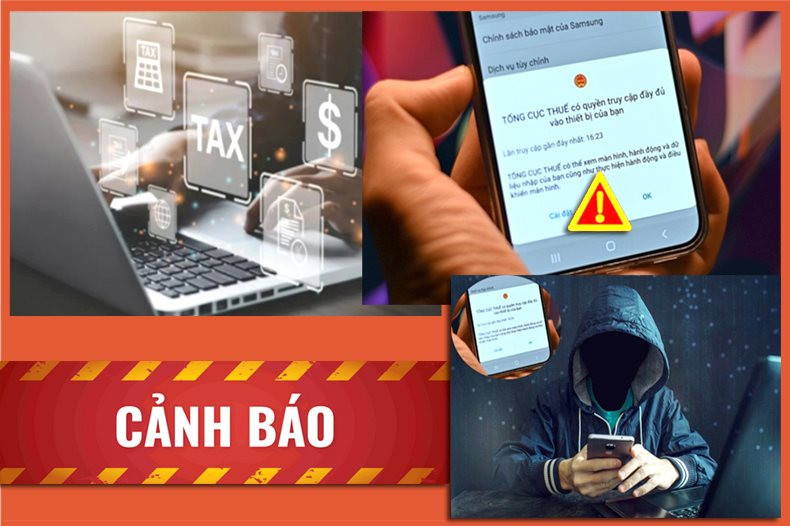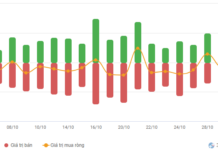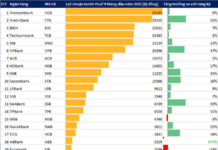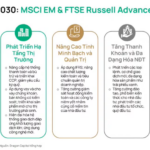Beware of scammers impersonating tax officials! They may contact you via phone, Zalo, or Facebook, inviting you to verify your information with the tax authority.
These scammers will then persuade you to download a fake app of the General Department of Taxation from fraudulent websites, disguised as Google Play Store (CHPlay). Once you click the link, you will be downloading a malicious “.apk” file.
The scammers will guide you through the installation process and ask you to grant the app extensive permissions to operate. These fake apps typically request excessive permissions, including access to your data, taking screenshots, and even accessibility permissions to remotely control your device. If granted, scammers can monitor and control your phone remotely, with their primary target being your banking and securities account login information.

Warning against impersonation scams by tax authorities to install malicious software and steal money from accounts. Source: Internet
According to the State Bank’s regulations on implementing security and authentication measures for online and card-based payments, all money transfers of VND 10 million or more require biometric authentication as of July 1, 2024. Customers performing transactions above the specified threshold or making their first transaction after a new mobile app installation or reinstallation on a new device will need to provide facial recognition authentication.
Scammers use various excuses to trick victims into performing multiple facial recognition authentications, allowing them to steal large sums from their accounts.
Recently, Mr. V (from Hoang Liet, Hoang Mai, Hanoi) received a call from someone claiming to be a tax official from the Hoang Mai Tax Office. They asked him to verify his newly established company’s information on Zalo for publication on the Public Service Portal.
Mr. V trusted them as they had accurate information about his company. He followed their instructions, downloaded the provided app, entered his bank account details, and performed facial recognition authentication twice. However, during the second authentication, he suspected a scam as he had encountered similar tactics on the Hanoi Police’s official website and in media reports. He immediately called his bank and requested to lock his account, preventing further losses.
Unfortunately, within two minutes before the account was locked, the scammers had already made two transactions, stealing nearly VND 1 billion from Mr. V’s account.
To avoid falling victim to such scams, the Hanoi Police Department’s Division of Cyber Security and High-Tech Crime Prevention advises the following:
Do not download unfamiliar apps or follow instructions from suspicious individuals. Always verify through official channels by calling the tax authority or the local police. When installing apps, use only trusted sources like CHPlay and App Store, and never grant apps full control over your device.
Users of open operating systems like Android should be extra cautious when granting permissions to unfamiliar apps installed from third-party sources. In contrast, iPhone users have a lower risk of malware infection due to Apple’s strict app review process for the App Store.
The number of people falling victim to fake software installation scams and subsequent bank account takeovers is increasing, with some losing tens of billions of dong. It is crucial to spread awareness and educate people about the signs and prevention of such scams to enhance cybersecurity and combat high-tech crimes in the capital.
Silent Sitting: Phone Hack Gives Control and Drains Bank Accounts – Protect Your Safety
In recent times, there have been numerous cases where individuals have raised concerns about their phones being hijacked and, within a few hours, their bank accounts being depleted. Even more concerning is the fact that some users have not performed any actions, yet money still disappears from their bank accounts. According to cybersecurity experts, anyone can become a victim.






































